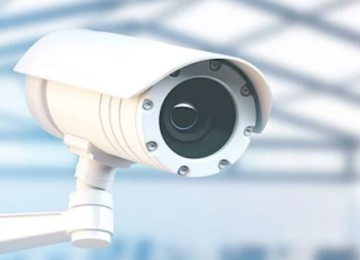Mastering Loss Prevention Across Multiple Retail Locations

Operators of multi-unit retail businesses face numerous challenges in safeguarding their locations. Each unit has distinct characteristics, leading to different theft risks and strategies. This article examines key security challenges multi-unit operators encounter and how these affect loss prevention and incident management.
1. Varied Theft Risks Based on Location Type
Each location is unique, influencing the specific risks it faces. A store in a busy urban area is more susceptible to shoplifting, while one in a remote area may face greater risks of internal fraud or break-ins. The diversity of locations within a multi-unit operation demands a tailored approach to security, as theft risks can vary significantly based on products, clientele, and foot traffic. For instance, luxury stores often attract professional thieves, whereas stores selling everyday goods are more prone to impulse theft.
2. Fragmented Security Management and Lack of Visibility
A significant challenge for multi-unit operators is fragmented security management. Typically, each location operates its own independent security system, causing security managers to handle each location separately. This decentralization impedes the efficient management of incidents and can increase costs. Without centralized, real-time data, it is challenging to maintain a comprehensive overview of security across all locations, exacerbating losses and decreasing incident response speed.
3. Delayed Response to Shoplifting and Other Incidents
Delayed responses are a common problem for multi-unit operators. Shoplifting, one of the most frequent theft incidents, is often detected only after it has occurred. Delays between incidents and responses result in substantial financial losses and can damage the brand’s reputation. Security staff may struggle to promptly identify suspicious activity due to high customer volume or lack of real-time monitoring technology, resulting in preventable losses.
4. Complex Security Costs and Incident Management
Managing security across multiple locations entails significant costs. Investments in surveillance systems, staffing security personnel, and incident management quickly add up, becoming a substantial financial burden. Additionally, losses from theft, fraud, and undetected incidents negatively impact overall profitability. Multi-unit operators must manage tight budgets while maintaining effective security. Without a cohesive and efficient strategy, costs escalate rapidly, reducing profit margins.
5. The Importance of a Tailored Security Solution
Given these challenges, multi-unit operators require flexible and adaptable security solutions tailored to each location's unique needs while enabling centralized oversight. Effective security solutions must provide rapid detection of suspicious activities, reduce losses through faster response times, and streamline incident management via centralized systems. Such solutions enhance responsiveness and minimize costs related to managing security at individual units.
An Intelligent Solution for Your Security Needs
In conclusion, multi-unit operators face diverse and complex security challenges. Effective security strategies must be flexible and responsive, adapting to each unit’s unique characteristics. Centralized security data, intelligent detection technology, and adaptable solutions for each location are essential for effective security management.
Veesion addresses these requirements by offering an intelligent, adaptable security solution tailored to each unit, providing real-time suspicious behavior detection, instant alerts, and centralized data management. Leveraging artificial intelligence and a user-friendly interface, Veesion optimizes security operations, reduces losses, and manages costs efficiently. Contact us today to discover how Veesion can strengthen security across your multi-unit operations.
The most popular
Related news
Discover what Veesion can do for you. Do you have one or more stores?
Our team will contact you within 48 hours





